International Day of People with Disability
History
The International Year of Disabled Persons 1981
In 1976, the United Nations General Assembly proclaimed 1981 as the International Year of Disabled Persons. It called for a plan of action at the national, regional and international levels, with an emphasis on equalization of opportunities, rehabilitation and prevention of disabilities.
The theme of IYDP (International Year of Disabled Persons) as "full participation and equality", defined as the right of persons with disabilities to take part fully in the life and development of their societies, enjoy living conditions equal to those of other citizens, and have an equal share in improved conditions resulting from socio-economic development.
United Nations Decade of Disabled Persons 1983-1992
To provide a time frame during which Governments and organizations could implement the activities recommended in the World Programme of Action, the General Assembly proclaimed 1983-1992 the United Nations Decade of Disabled Persons.[3]
Themes from previous years
- 1998: "Arts, Culture and Independent Living"
- 1999: "Accessibility for all for the new Millennium"
- 2000: "Making information technologies work for all"
- 2001: "Full participation and equality: The call for new approaches to assess progress and evaluate outcome"
- 2002: "Independent Living and Sustainable Livelihoods"
- 2003: "A Voice of our Own"
- 2004: "Nothing about Us, Without Us"
- 2005: "Rights of Persons with Disabilities: Action in Development"
- 2006: "E-Accessibility"
- 2007: "Decent Work for Persons with Disabilities"
- 2008: "Convention on the Rights of Persons with Disabilities: Dignity and justice for all of us"
- 2009: "Making the MDGs Inclusive: Empowerment of persons with disabilities and their communities around the world"
- 2010: "Keeping the promise: Mainstreaming disability in the Millennium Development Goals towards 2015 and beyond"
- 2011: "Together for a better world for all: Including persons with disabilities in development"
Famous People with Disabilities
Einstein is the great scientist of the twentieth century and notable physicist of all time. It is told that he had learning disability in his childhood. He could not talk till he was three and could not read till he was eight. Despite such problems he later became the noble prize winner for his contribution to the Physics. His theory of relativity is considered as a revolutionary development of Physics. He got Noble Prize in Physics in 1921 for his explanation of the Photoelectric Effect and for his research in Theoretical physics.
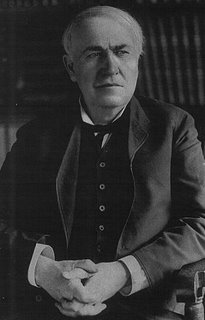 Edison is the great inventor who has over 1000 patents and his inventions are in various fields used in our daily life. In his early life he was thought to have a learning disability and he could not read till he was twelve and later he himself admitted that he became deaf after pulling up to a train car by his ears. He first could able to turn the attention of the world after inventing Phonograph. His one of the most popular invention is the Electric Bulb. He also developed the telegraph system. His invention of carbon telephone transmitter developed the carbon microphone which was used in the telephoned till 1980. He also became a prominent businessman and his business institution produced his inventions and marketed the products to the general people.
Edison is the great inventor who has over 1000 patents and his inventions are in various fields used in our daily life. In his early life he was thought to have a learning disability and he could not read till he was twelve and later he himself admitted that he became deaf after pulling up to a train car by his ears. He first could able to turn the attention of the world after inventing Phonograph. His one of the most popular invention is the Electric Bulb. He also developed the telegraph system. His invention of carbon telephone transmitter developed the carbon microphone which was used in the telephoned till 1980. He also became a prominent businessman and his business institution produced his inventions and marketed the products to the general people.John Milton
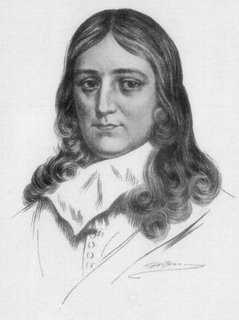 Milton is the great English poet and widely known for his epic "Paradise lost". However, before writing this famous epic he became blind at 43. Blindness could not make him stop form practicing literature. This great poet is considered as the most learned English poet as he had knowledge in different disciplines including theology, philosophy, history, politics, literature and science before starting to write poems. He got his matriculation degree form the Christ's College, Cambridge in 1625 and became graduated in the same college in Mater of Arts in 1632.
Milton is the great English poet and widely known for his epic "Paradise lost". However, before writing this famous epic he became blind at 43. Blindness could not make him stop form practicing literature. This great poet is considered as the most learned English poet as he had knowledge in different disciplines including theology, philosophy, history, politics, literature and science before starting to write poems. He got his matriculation degree form the Christ's College, Cambridge in 1625 and became graduated in the same college in Mater of Arts in 1632. Ludwig van Beethoven

Beethoven is the great German composer and musician who was deaf at the later part of his life. In his early life he was famous as a pianist. He got the primary knowledge of music from his father, Johann van Beethoven who was a musician in the electoral court. He has some mysterious power which led him to create famous composes one after another. He went Vienna and learned many things from some of the prominent musicians. After his age of 28, he started becoming deaf and his personal life was not so peaceful. He composed many piano Sonatas such as Waldstein, Appassionata etc.
Alexander Graham Bell
Alexander Graham Bell (March 3, 1847 –August 2, 1922) was an eminent scientist, inventor, engineer and innovator who is credited with inventing the first practical telephone.
Bell's father, grandfather, and brother had all been associated with work on elocution and speech, and both his mother and wife were deaf, profoundly influencing Bell's life's work.His research on hearing and speech further led him to experiment with hearing devices which eventually culminated in Bell being awarded the first US patent for the telephone in 1876.In retrospect, Bell considered his most famous invention an intrusion on his real work as a scientist and refused to have a telephone in his study.
Many other inventions marked Bell's later life, including groundbreaking work in optical telecommunications, hydrofoils and aeronautics. In 1888, Alexander Graham Bell became one of the founding members of the National Geographic Society. Bell has been described as one of the most influential figures in human history. He had a learning disability
Stephen Hawking
This famous scientist is considered as the greatest scientist of the twentieth century after Einstein. Haw king's big bang theory and black hole theory has turned the attention of the world. He is the professor of Mathematics of the University of Cambridge. Though he is now about to be paralyzed, he is teaching through a computer supported a machine by which his world are compiled. His physical illness could not make him stop form his research. His famous book is "A Brief History of Time".
Franklin D. Roosevelt
Franklin Delano Roosevelt (January 30, 1882 – April 12, 1945), also known by his initials, FDR, was the 32nd President of the United States (1933–1945) and a central figure in world events during the mid-20th century, leading the United States during a time of worldwide economic crisis and world war. The only American president elected to more than two terms, he facilitated a durable coalition that realigned American politics for decades. With the bouncy popular song "Happy Days Are Here Again" as his campaign theme, FDR defeated incumbent Republican Herbert Hoover in November 1932, at the depth of the Great Depression. FDR's persistent optimism and activism contributed to a renewal of the national spirit, reflecting his victory over paralytic illness to become the longest serving president in U.S. history. He worked closely with Winston Churchill and Joseph Stalin in leading the Allies against Germany and Japan in World War II, but died just as victory was in sight. Franklin D. Roosevelt's paralytic illness began in 1921 at age 39, when Roosevelt got a fever after exercising heavily at a vacation in Canada. While his bout with illness was well known during his terms as President of the United States, the extent of his paralysis was kept from public viewGeorge Washington
Had a learning disability. He could barely write and had very poor grammar skills.
(Devoted Life to Persons with Disabilities) She was Blind, Deaf, and Mute
English Author/poet (1608-1674): He became blind at age 43. He went on to create his most famous epic, Paradise Lost.
Walt Disney
Next time when you see a disabled person
Know that they are differently able......
Venu Haridas
www.keralites.net         |
To subscribe send a mail to Keralites-subscribe@yahoogroups.com.
Send your posts to Keralites@yahoogroups.com.
Send your suggestions to Keralites-owner@yahoogroups.com.
To unsubscribe send a mail to Keralites-unsubscribe@yahoogroups.com.
Homepage: www.keralites.net
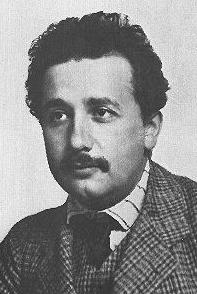

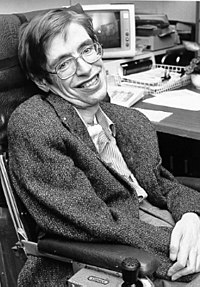


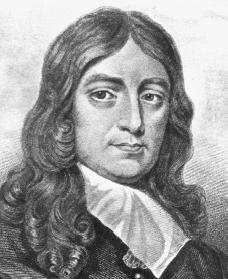

No comments:
Post a Comment